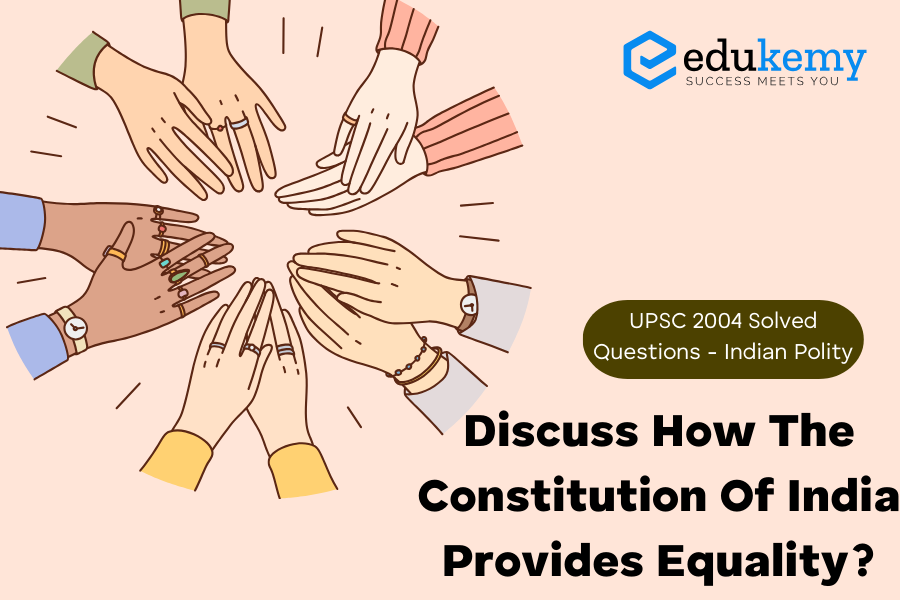
The concept of ‘Equality’ in the preamble of the Indian Constitution commits to ensuring equality of status and opportunity for all citizens of India. This commitment spans three dimensions: civic, political, and economic. Within Part III of the Constitution, the chapter on Fundamental Rights safeguards civic equality through specific provisions:
- Equality before the law (Article 14)
- Prohibition of discrimination on grounds of religion, race, caste, sex, or place of birth (Article 15)
- Equality of opportunity in matters of public employment (Article 16)
- Abolition of untouchability (Article 17)
- Abolition of titles (Article 18)
Political equality is pursued through Article 325, which declares that individuals should be ineligible for inclusion in electoral rolls based on religion, race, caste, or sex. Article 326 establishes that elections to the Lok Sabha and state assemblies should be conducted through adult suffrage.
Economic equality is safeguarded by the Directive Principles of State Policy, particularly Article 39, which ensures men and women an equal right to an adequate means of livelihood and equal pay for equal work. The Supreme Court has emphasized that Article 14 does not apply when equals and unequal are treated differently, allowing for reasonable classification without arbitrariness.
In the case of M Nagaraj v/s Union of India (2007), the Supreme Court affirmed that the Right to Equality under Article 14 is a fundamental aspect of the Constitution’s ‘Basic Structure.’ The Court held that equality is integral to democracy, and the ‘Rule of Law’ embodied in Article 14 is a fundamental feature that cannot be altered through amendment.
However, there are exceptions to Article 14 outlined in specific provisions of the Constitution:
- Article 361: The President of India and the Governors of states are exempted from criminal proceedings during their term of office.
- Article 31-C: Laws implementing Directive Principles in clauses (b) or (c) of Article 39 cannot be challenged for violating Article 14.
- Article 359(1): The President may suspend the right to move to court for the enforcement of Fundamental Rights, excluding Articles 20 and 21.

Contents
In case you still have your doubts, contact us on 9811333901.
For UPSC Prelims Resources, Click here
For Daily Updates and Study Material:
Join our Telegram Channel – Edukemy for IAS
- 1. Learn through Videos – here
- 2. Be Exam Ready by Practicing Daily MCQs – here
- 3. Daily Newsletter – Get all your Current Affairs Covered – here
- 4. Mains Answer Writing Practice – here

